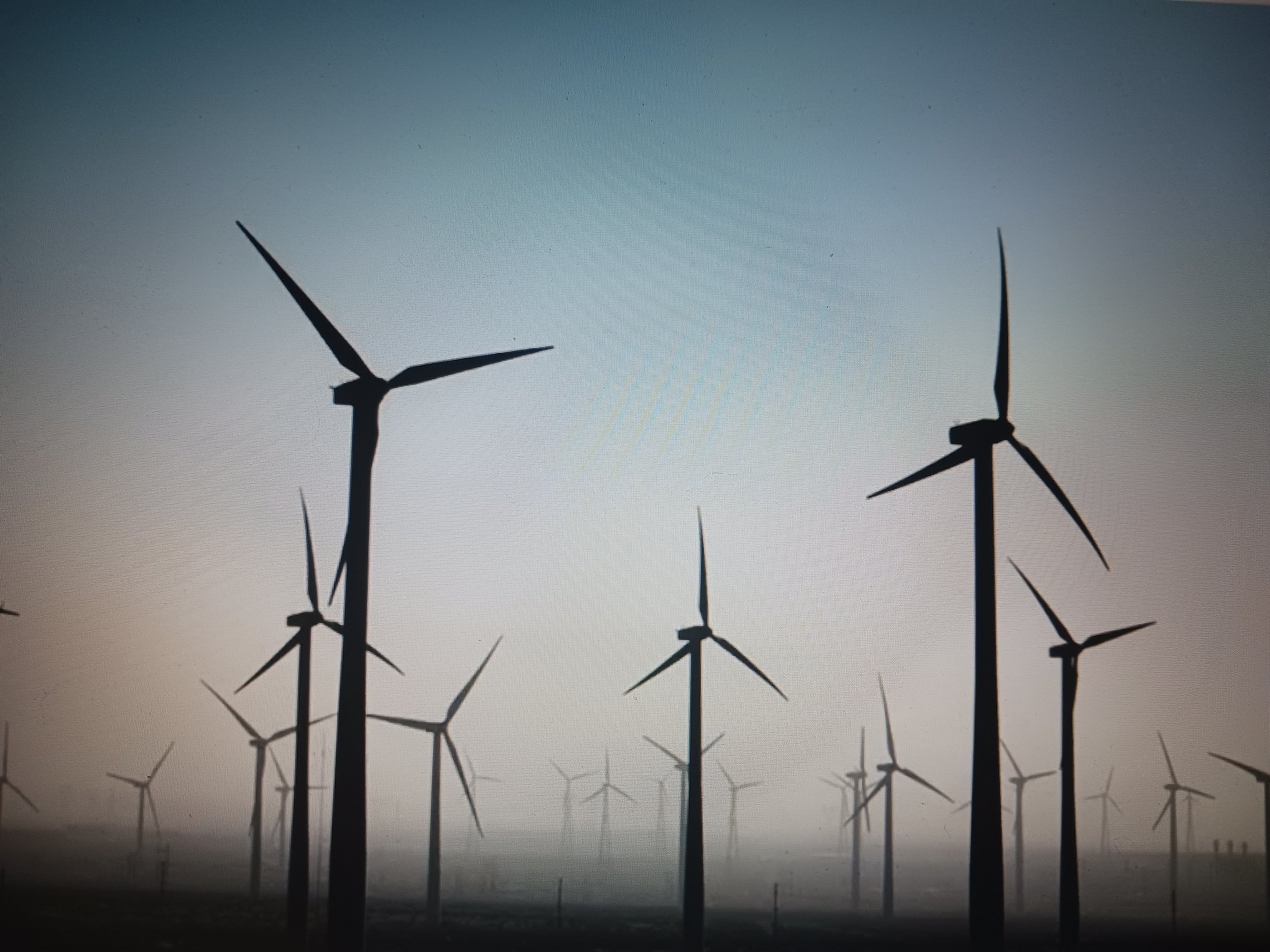U.S. Rep. Jeff Van Drew speaks of the potential harm to shore communities from offshore wind farm projects.
U.S. Rep. Jeff Van Drew vowed Tuesday that he will continue to fight against offshore wind energy as he and other speakers lamented it would mean the "industrialization of the ocean."
“I have never seen a project that had so many bad aspects,” Van Drew said of wind farm development around the world while speaking at a forum at Brigantine Community School.
In 2023, Danish energy company Orsted scrapped plans to build two wind farms off the South Jersey coast after concluding that the projects would not be worth the enormous development cost.
The forum, a third installment by Van Drew engaging the public, explored how offshore wind farms could impact coastal communities, threaten marine life, harm the fishing industry and tourism, create a visual blight and increase utility costs for consumers.
“Persistence pays off. And you fight hard. You don’t relent. You don’t give up and you don’t succumb,” Van Drew, whose congressional district includes the shore towns of Atlantic and Cape May counties, said of the battle against the wind farms.
Gov. Phil Murphy's goal is 100 percent clean energy by 2050, and the offshore wind projects are an integral part of his plan for New Jersey.
Van Drew noted that Brigantine Mayor Vince Sera, another prominent wind farm opponent, “refused to give up.”
“We want to stop them in every single way we can. We can’t be lazy about it, and we can’t sit back or we’ll lose our ocean,” Van Drew exhorted.
Sera said the wind farm projects “make absolutely no sense.”
“If it is not saving the planet, we really shouldn’t be doing it,” Sera said.
He called Van Drew “a true champion for South Jersey.”
Other speakers included U.S. Rep. Scott Perry of Pennsylvania. Perry told the audience that filled the school auditorium, “I don’t think your voices are being considered adequately. I want to see the right thing done. And if not, then Jeff and I will use the (congressional) platform to demand it.”
 Overall, nearly 100 massive wind turbines were planned in Orsted's Ocean Wind 1 project. (Rendering courtesy of Cape May County)
Overall, nearly 100 massive wind turbines were planned in Orsted's Ocean Wind 1 project. (Rendering courtesy of Cape May County) Perry said it is not a partisan issue. Democrats and Republicans came together to fight the wind farms because of the potential harm to tourism and the fishing industry as well as marine life, he said.
Dianne Solomon, a former commissioner of the New Jersey Board of Public Utilities, spoke to the potential increase in utility costs with the wind farm projects.
Robert Rand, an acoustics engineer with expertise in industrial noise control, discussed the possible impact on marine life, specifically the whales, when sonar activity has been conducted for wind farm projects. Over the last two years, there has been a spate of whale deaths along the Jersey Shore that opponents of wind farms believe was due to the effects of sonar activity and noise levels created by pile driving.
Rand said that it is hard to determine for certain the effect on marine life, but acknowledged it definitely was possible that pile driving and sonar activity could cause harm.
“We don’t really know how many fish were killed,” Rand said. He also said that the sonar activity and pile driving in the ocean could change the behavior of the whales and also cause deafness in the dolphins. However, he said, it is difficult to say for certain.
Amy DiSibio, a Nantucket, Massachusetts, community leader, talked a bit about the harm that was caused when a turbine blade fell into the ocean in Massachusetts and pieces washed up on Nantucket from the Vineyard Wind project.
“What is the goal for the project if it is not to fix climate change? I think that is the most important question. If this isn’t moving the needle on anything, then why are we doing it?” DiSibio asked.
Meghan Lapp, a representative of Seafreeze Fisheries, said wind energy projects could harm fisheries.
“We need to take back our oceans,” she said.